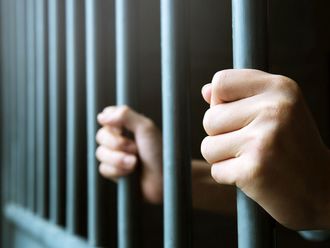Manama: The routine clinical screening of expatriates coming into the Gulf Cooperation Countries (GCC) might be also used to “detect” homosexuals, a senior Kuwaiti official has said.
A central committee tasked with the status of expatriates will look into the proposal when it convenes on November 11, Yousuf Mindkar, the director of public health at the Kuwaiti health ministry, has said.
“Health centres conduct the routine medical check to assess the health of the expatriates when they come into the GCC countries,” he said. “However, we will take stricter measures that will help us detect gays who will be then barred from entering Kuwait or any of the GCC member states,” he said, quoted by local daily Al Rai on Monday.
Homosexual acts are banned in Bahrain, Kuwait, Oman, Qatar, Saudi Arabia and the United Arab Emirates, the GCC member countries.
In Bahrain, lawmakers, wary of the growing number of gays coming into the country, had pushed for a crackdown, including the adoption of tougher immigration measures and prompt deportations.
In Kuwait, prison terms for homosexual acts can reach 10 years if the people involved were under the age of 21.
In 2011, Bahrain arrested 127 people, mainly gays from the Gulf countries, for holding a “depraved and decadent” party. The revellers hired a sports hall in Hidd, a conservative village on Muharraq island in the north of Bahrain, and organised a fee-paying party that brought together gay men from the Arabian Gulf countries. Most of the attendees were between 18 and 30 years old and one Lebanese and one Syrian were among those arrested following the police bust.
Neighbours, complaining about the late night noises emanating from the sports hall in the traditional fishing village, had alerted the police who sent a patrol to verify the claims at around 2.30am. An undercover agent paid the 20 dinar entrance fee and was allowed into the hall where he saw dozens of cross-dressers drinking and smoking shisha. More patrols were called in and 127 people were arrested in the police swoop.
In 2010, Kuwait banned the screening of a controversial Egyptian film, saying that it promoted a culture of debauchery.
The film, Bedoon Rakaba (Out of Control or Uncensored), was produced in 2009 and addresses lifestyles centering on drug use by young people, and lesbianism, a taboo subject in Arab cinema and society.
A member of the censorship board said that some of the scenes were “too hot” and that the lesbianism theme was “too bold.” The member stressed that the scenario was very weak and failed to address the controversial issues properly.
In the film, the main character, Ahmad Fahmy, is a drug addict and an alcoholic who inherits a colossal fortune when his father dies. Actress Ola Ghanem plays the role of a lesbian who seeks to lure young girls into her way of life.











